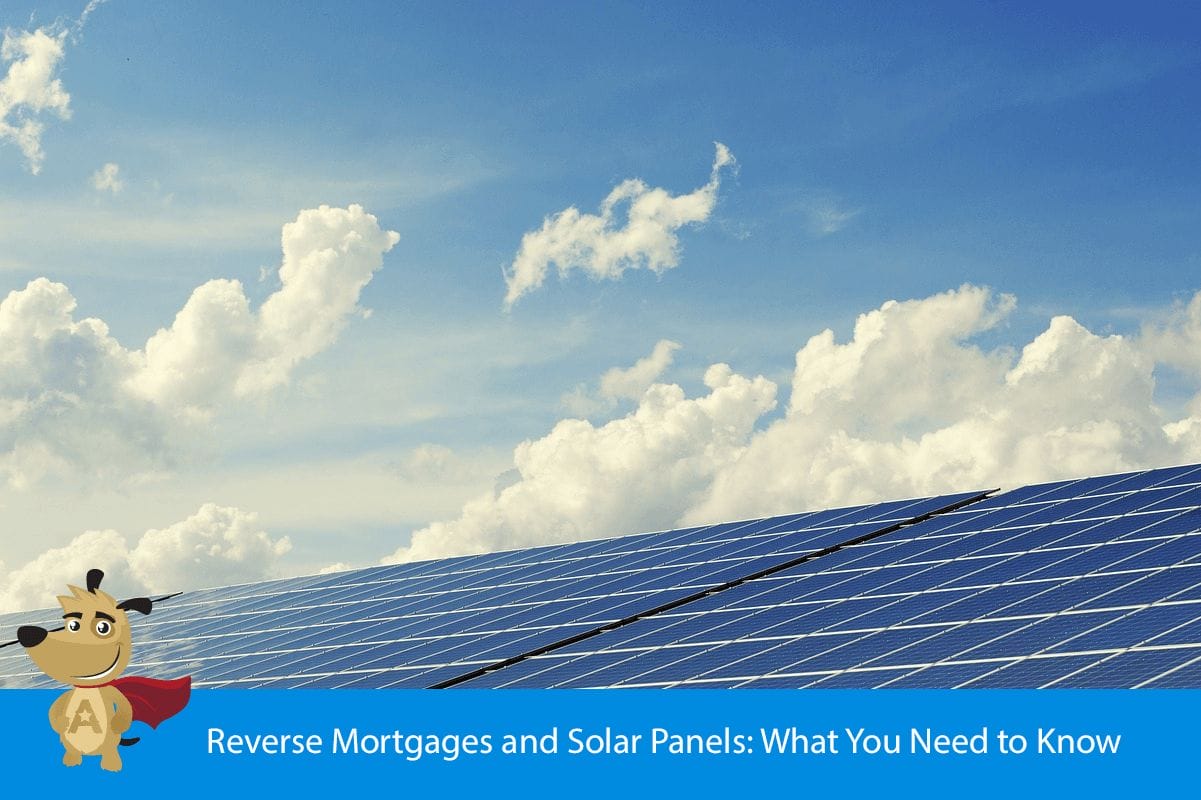
America’s #1 Rated Reverse Lender*
Reverse Mortgages and Solar Panels: What You Need to Know
 |
Michael G. Branson, CEO of All Reverse Mortgage, Inc., and moderator of ARLO™, has 45 years of experience in the mortgage banking industry. He has devoted the past 20 years to reverse mortgages exclusively. (License: NMLS# 14040) |
 |
All Reverse Mortgage's editing process includes rigorous fact-checking led by industry experts to ensure all content is accurate and current. This article has been reviewed, edited, and fact-checked by Cliff Auerswald, President and co-creator of ARLO™. (License: NMLS# 14041) |
As our homes age, it is not uncommon to invest in renovation projects that enhance our ability to age in place, especially if those upgrades help lower monthly utility bills. Installing solar panels is one effective solution to reduce your overall electricity expense, but if you’re a homeowner considering a reverse mortgage to support your retirement, there are a few things you should consider before retrofitting your home into an eco-friendly abode.
Reverse mortgages allow homeowners age 62 and older to convert a portion of their home equity into tax-free loan proceeds that can be used without restriction.
Retirees who plan to spend their non-working years living in their current homes can use reverse mortgage loan proceeds to pay for the costs of home improvement projects that will help them age in place.
The increased cash flow from a reverse mortgage can also help borrowers pay for home renovations, including the installation of solar panels and other energy efficient features.

Solar panels: Buy or Lease?
Solar panels can produce significant savings and return on investment (ROI) for homeowners, depending on their property and whether they choose to purchase or lease a solar panel system.
Buying a system with cash or via solar loan financing can yield between 40% and 70% of savings on electricity costs over the lifetime of the solar panel system, depending on the property, according to EnergySage, an online marketplace that connects consumers with solar loan providers.
Alternatively, leasing a system can produce savings of between 10% to 30% off the prices they would pay for electricity, depending on the property. With leasing, the solar company owns and maintains the solar power system, whereas if you purchased the system then you would be considered the owner, and as such, are responsible for maintaining it.
A reverse mortgage may be able to help finance the costs of a solar panel purchase or lease, but there are important considerations that prospective borrowers should bear in mind during the loan application process.
Reverse mortgage considerations
When applying for a reverse mortgage, loan applicants will be subject to a financial assessment to determine their willingness and capacity to afford the loan. Essentially, the lender will consider the financial profile of the applicants to make sure they have the wherewithal to continue paying their property taxes and homeowners insurance.
In doing so, the lender may review any and all sources of income, as well as the prospective borrower’s credit score and property charge history. The lender may also take into account any debts belonging to the loan applicant as part of the financial assessment, including any liens that are on the applicant’s property.
If you choose to lease solar panels, you will be expected to provide the lender with a copy of the solar lease, as well as termination of the UCC filing, a legal form giving notice that a creditor has an interest in the debtor’s personal property.
For those who financed the purchase of their solar panels as part of their taxes, such as through the Home Energy Renovation Opportunity (HERO) program, they will be required to pay off the remaining loan balance at closing using proceeds obtained from the reverse mortgage.
Because it is in the best interest of applicants to be as transparent as possible about their finances when applying for a reverse mortgage, homeowners who purchased their solar panel system outright may also want to provide such information to their lender.
Transparency and cooperation during the application process is key not only to facilitating a smooth transaction, but also ensuring that a reverse mortgage is the right solution for the right homeowner.
ARLO recommends these helpful resources:

Have a Question About Reverse Mortgages?
Over 2000 of your questions answered by ARLO™
Ask your question now!

 Michael G. Branson
Michael G. Branson Cliff Auerswald
Cliff Auerswald

February 11th, 2025
February 18th, 2025
June 23rd, 2024
June 23rd, 2024
January 24th, 2023
January 31st, 2023
May 16th, 2021
May 18th, 2021
June 9th, 2020
June 10th, 2020
May 2nd, 2019
May 2nd, 2019
January 17th, 2019
January 17th, 2019
May 7th, 2017
May 7th, 2017
April 12th, 2017
April 12th, 2017
February 20th, 2017
February 21st, 2017